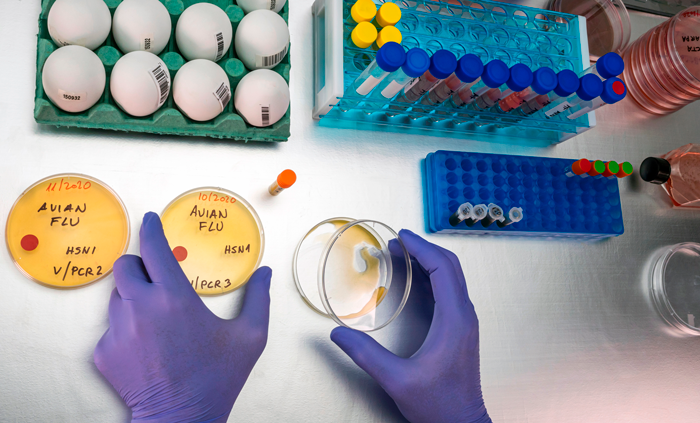
Image: Adobe Stock
The state of Rio de Janeiro recorded the third case of a wild migratory bird contaminated with avian influenza (H5N1), the so-called bird flu. The government of Rio reported, on Saturday (27) night, that the common tern (Thalasseus acuflavidus) was found on Ilha do Governador, north of Rio.
According to the statement, the Federal Agricultural Defense Laboratory (LFDA-SP) of the Ministry of Agriculture, Livestock and Supply (Mapa) analyzed the material from the bird that was collected, by a specialized professional, on Tuesday (23) .
{module Form RD}
The state government added that the Strategic Information Center for Health Surveillance (Cievs) of the State Health (SES-RJ) and municipal health departments of Rio de Janeiro is monitoring the three people who helped collect the animal. “To date, none of them have flu-like symptoms and, therefore, no samples have been taken for tests,” the statement said.
Still in May, two other wild birds of the same species were identified, with the H5N1 virus. “They were found in São João da Barra, in the North of Rio de Janeiro, and in Cabo Frio, in the Lagos region”, added the Rio de Janeiro Executive.
Monitoring and prevention actions to prevent the spread of the virus in the state, according to state authorities, were intensified. The Secretariat of Agriculture, Livestock, Fisheries and Supply (Seappa) released, this week, “the Contingency Plan that establishes control measures to detect early and contain the spread of Avian Influenza in domestic, wild and exotic birds”. Furthermore, as it is a zoonosis with pandemic potential, the document establishes the flow of information between the bodies involved.
“The Departments of Health and Agriculture have established a communication flow to report any mortality of suspected birds, as well as people with suspected flu syndrome and a history of contact with suspected birds”, he added in the note.
According to SES and Seappa technicians, there is no reason for the population to worry about the H5N1 epidemic, because, at the moment, there is no direct transmission, from person to person. The technicians also highlighted that the disease is not transmitted through the consumption of poultry meat or eggs. “Human infections with the Avian Influenza virus occur through direct contact with infected birds (dead or alive)”, they reported.
Prevention
Also in the statement, the government of Rio recalled that last Monday (22), the Ministry of Agriculture declared a zoosanitary emergency throughout the national territory. The intention is to prevent the disease from reaching subsistence and commercial poultry production, in addition to preserving wildlife and human health.
SES-RJ has instructed health unit professionals to remain alert, during screening and medical care, to cases of flu syndrome in patients who have had contact with wild animals. “If suspected, sample collection is recommended, regardless of the day symptoms began, including cases in the intensive care unit (ICU). Diagnosis by RT-PCR is considered the gold standard method and should always be adopted to obtain laboratory results”, he pointed out.
Alert
The State Department of Agriculture drew attention to the need for the population to avoid direct contact with fallen birds, whether dead or not, domestic, wild/exotic and migratory, as well as aquatic mammals (any species). “Any suspicion of a contaminated animal must be reported immediately to the region’s Agricultural Defense Center or to the Environmental Surveillance Coordination of your municipality”, he advised.
Poultry farmers
For breeders of meat or laying birds, small-scale and subsistence poultry farming, the Department of Agriculture suggested that they intensify biosecurity measures on farms. “Care must be taken, such as strictly prohibiting any type of visit to production units; check core enclosure and adequate screening of the shed; keep the property access gate closed; disinfect vehicles and materials that access the farms; be careful with food and water; maintain records of people and vehicles, among other measures defined in current regulations”, he indicated.
Source: Notícias Agrícolas












